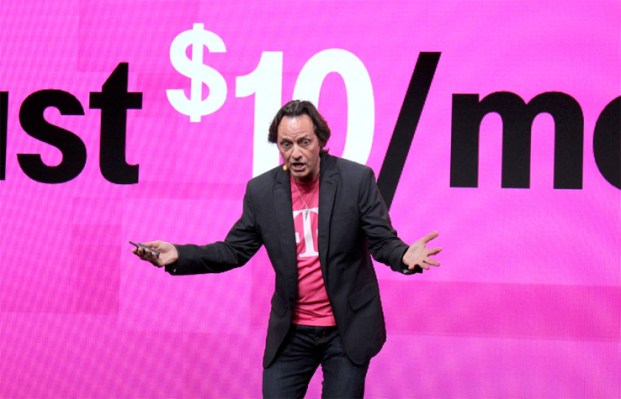The FTC is taking T-Mobile to court. Their claim? T-Mobile is allowing shady text messaging services to sneak onto your bill, and making “hundreds of millions of dollars” by not doing enough to stop it.
Let’s say you’re sitting at home, bored. Your phone blinks as a text rolls in.
“Welcome to Celebrity Gossip King! Text STOP to cancel,” it reads.
“Weird,” you think. “Must be spam or something. If I reply, I’ll probably make it worse. Plus, I kind of like celebrity gossip anyway.”
Six months later, you’re looking at your mobile phone bill closely for the first time in ages.
Wait, what’s that $9.99 charge lurking on page 20? “Celebrity Gossip King”? That garbage is costing you 10 bucks a month?
You check your last few bills. Sure enough, $10 a month, every month.
You didn’t sign up for this.
Welcome to the world of premium SMS — sketchy, for-pay text message services that many a mobile phone owner has found themselves unwittingly subscribed to.
How? It varies. Maybe you punched in your phone number on some ringtone download site. Maybe someone else signed you up. Maybe the service is just spamming numbers en masse in hopes that most people will just ignore it.
The FTC has been battling this many-headed scam (known as “mobile cramming”) for the past few years, primarily by going after the folks operating the lines and pushing carriers to automatically block charges from premium numbers . Today they’ve filed a complaint against T-Mobile for failing to stop the charges — and, claims the FTC, profiting from it.
Here’s what the FTC is claiming in its complaint:
- That T-Mobile is aware of the scam: “T-Mobile in some cases continued to bill its customers for these services offered by scammers years after becoming aware of signs that the charges were fraudulent.”
- That T-Mobile makes it “nearly impossible to find and understand” the charges on their bill. Even if a customer regularly checks their bill, premium text services can show up as cryptic single line items 30 pages deep into a 50 page bill.
- That T-Mobile receives up to 40% of the monthly fee charged by these lines
- In cases where the customer noticed the charges, T-Mobile “refused refunds to some customers, offering only partial refunds of two months’ worth of the charges to others, and in other cases instructed consumers to seek refunds directly from the scammers”
With its complaint, the FTC wants the courts to order two things: for T-Mobile to permanently and proactively block these “cramming” scams, and to refund consumers for what they call “ill-gotten gains.”
We’ve reached out to T-mobile for comment, and will update this story if we hear back. T-Mobile’s generally rather vocal CEO John Legere has yet to publicly respond to the complaint.
Update — Here’s the response from Legere:
We have seen the complaint filed today by the FTC and find it to be unfounded and without merit. In fact T-Mobile stopped billing for these Premium SMS services last year and launched a proactive program to provide full refunds for any customer that feels that they were charged for something they did not want. T-Mobile is fighting harder than any of the carriers to change the way the wireless industry operates and we are disappointed that the FTC has chosen to file this action against the most pro-consumer company in the industry rather than the real bad actors.
As the Un-carrier, we believe that customers should only pay for what they want and what they sign up for.” said John Legere, CEO T Mobile USA. “We exited this business late last year, and announced an aggressive program to take care of customers and we are disappointed that the FTC has instead chosen to file this sensationalized legal action. We are the first to take action for the consumer, I am calling for the entire industry to do the same.
This is about doing what is right for consumers and we put in place procedures to protect our customers from unauthorized charges. Unfortunately, not all of these third party providers acted responsibly—an issue the entire industry faced. We believe those providers should be held accountable, and the FTC’s lawsuit seeking to hold T-Mobile responsible for their acts is not only factually and legally unfounded, but also misdirected.
— John Legere, CEO of T-Mobile USA
